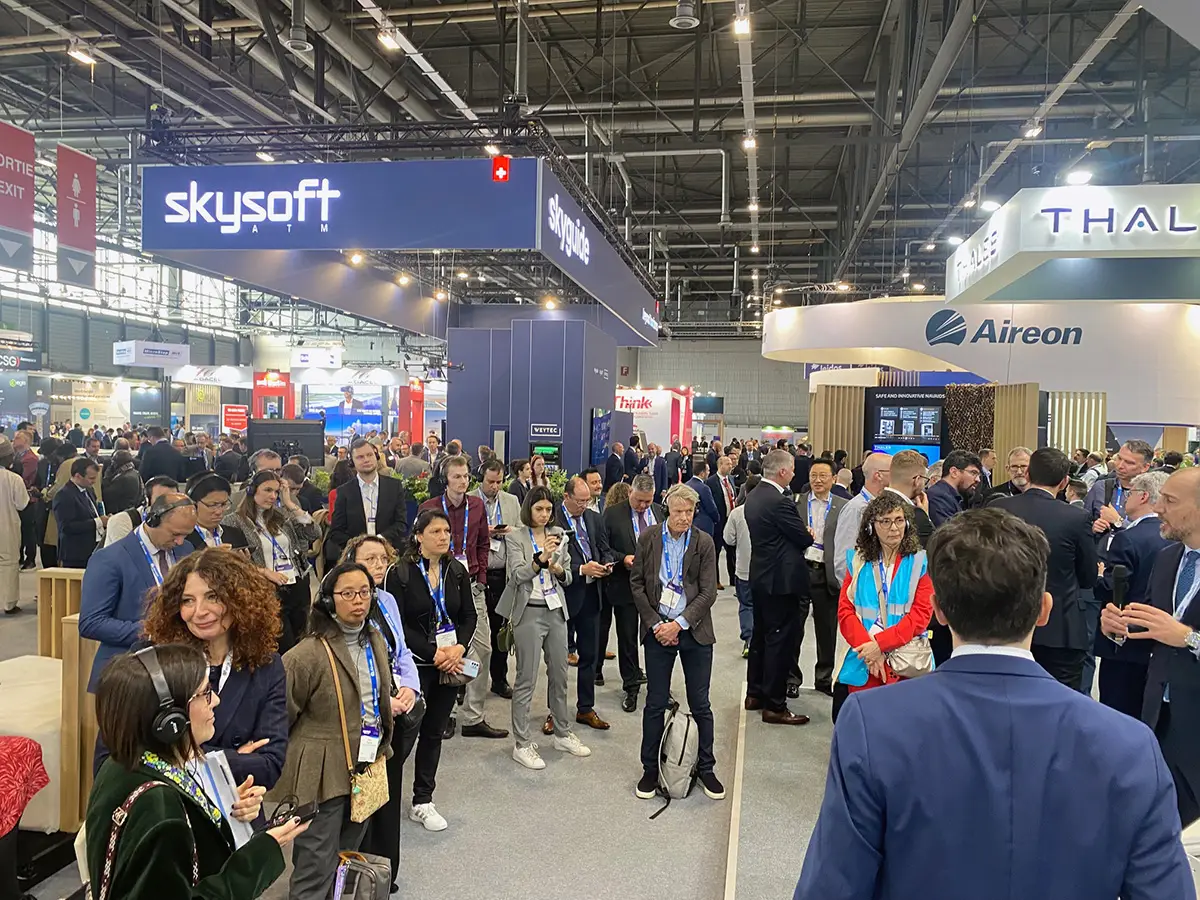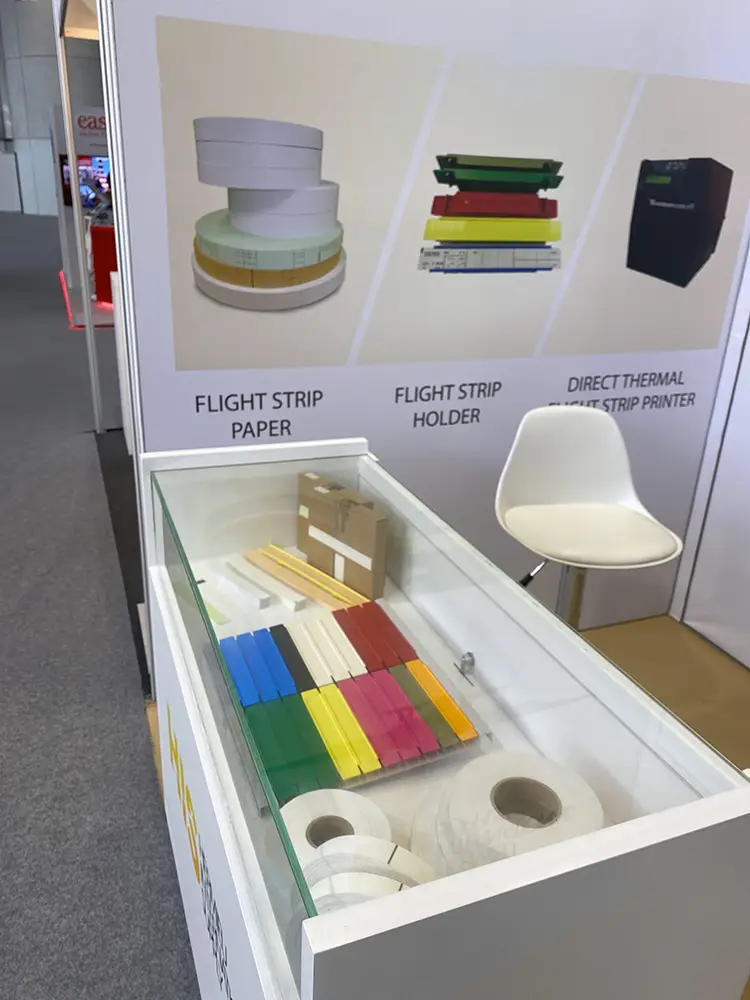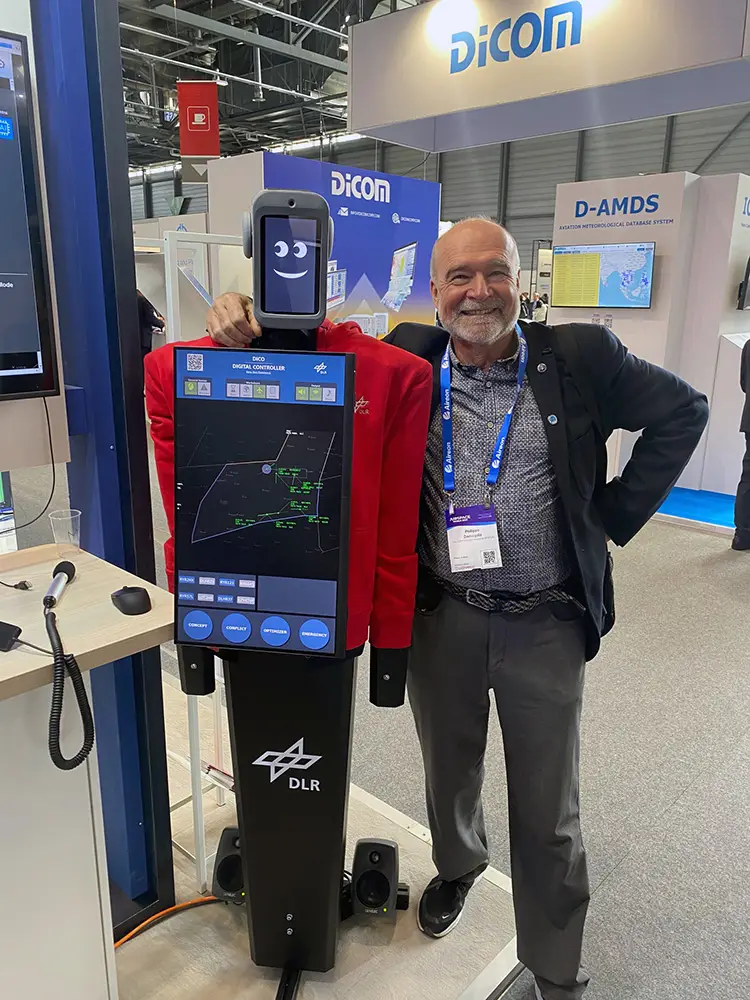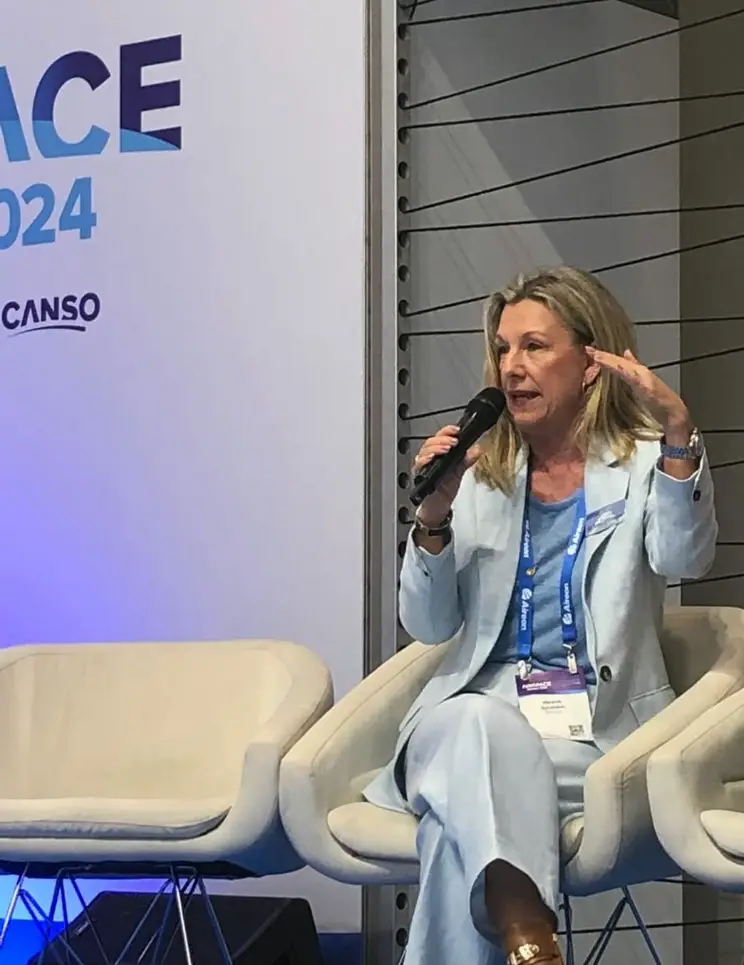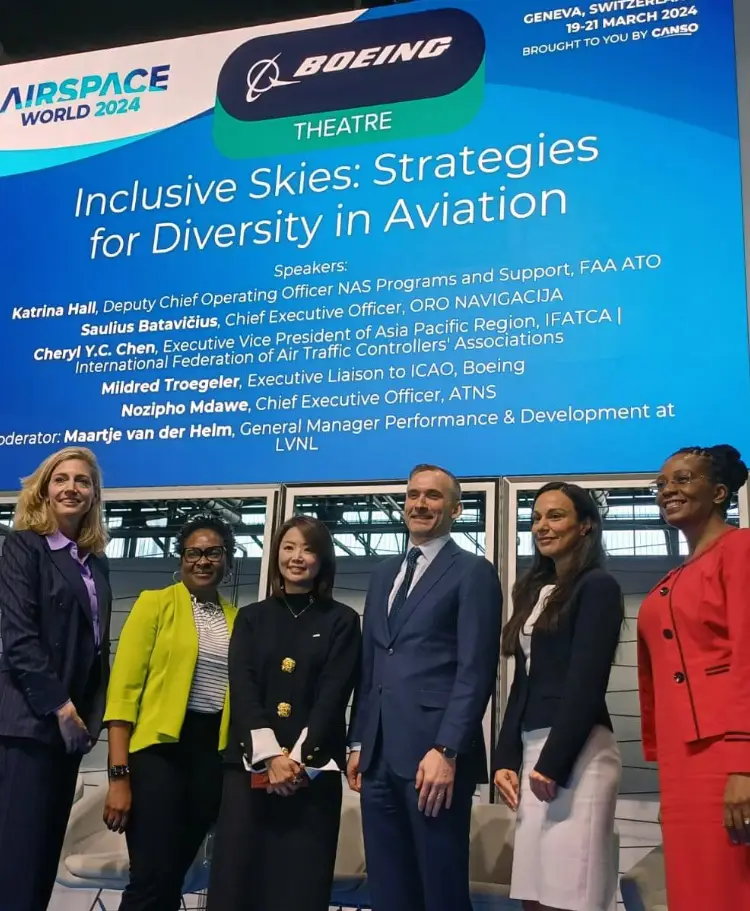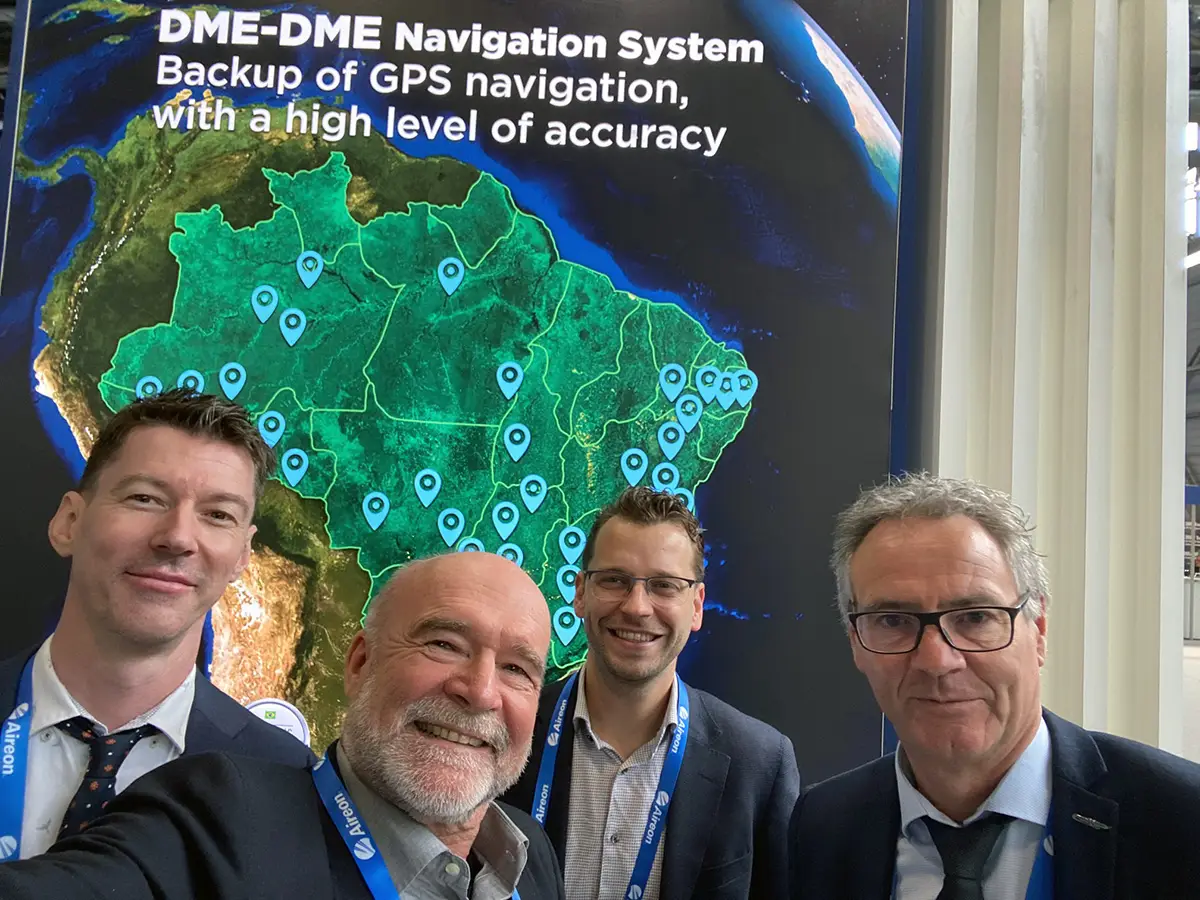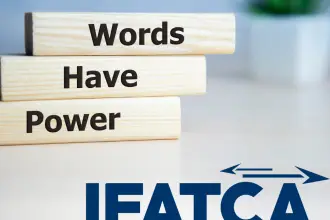
by Philippe Domogala
IFATCA Contributing EditorFor the second and last time, the CANSO Airspace World exhibition was held in Geneva from March 19 to 21. Because Switzerland is relatively expensive, the organizers decided to move it to Portugal next year.
All major ATM companies had sizeable stands, including nearly all our IFATCA industry partners. As always, checking in with each of them was a pleasure! EUROCONTROL shared a smaller booth with EU and SESAR and showed few innovations. Also present were our fellow professional organizations IFALPA, IFATSEA, and IFISA, with whom it is always useful to reaffirm our ties.
There was no easily discernable main theme for the event this year: the drones that were once omnipresent in Madrid were mostly gone. The “green agenda” is still there but more discrete. Air mobility seemed to be the new buzzword, and CO2 emission reduction was mentioned in every speech, but mostly as intentions and hope rather than offering practical solutions. The global airline fleet is expected to grow by one-third over the next decade: airlines are planning to operate some 36,000 aircraft by 2033, up from about 27,400 today. 99% will be equipped with conventional engines, and with “green SAF fuel” costing about eight times more than conventional fossil jet fuel, it is difficult to see how they will reduce emissions and meet the 2050 targets.
SESAR’s first real technical implementations have quietly shifted from 2030 to 2040, all while traffic is expected to continue growing steadily in that period. The CEO of the German ATS provider DFS stated that the war in Ukraine was pushing more traffic to them, forcing them to innovate and bring in more “new technology.” This has become the new mantra of almost every ANSP, promising this “new technology” will solve all our problems.
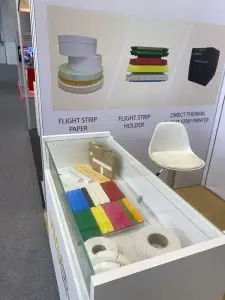
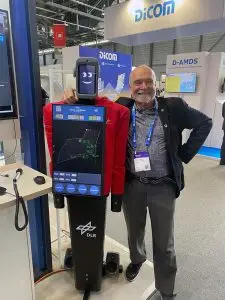
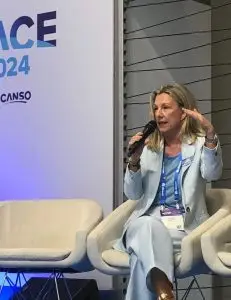
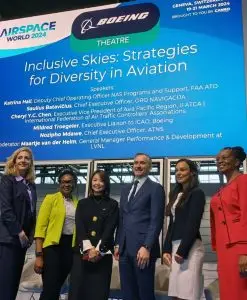
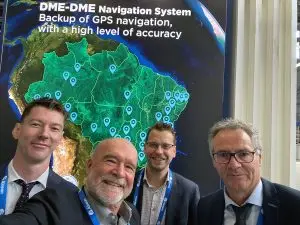
While we wait for this new technology to save us, some current ones are causing real headaches. The impact of GPS Jamming and spoofing needs to be mitigated by relying on old terrestrial navigation aids like VORs and DMEs. There is even talk of re-establishing LORAN, a 1940 technology!
Interestingly, in our digitalization age and among all these future technologies, a small stand was selling plastic strip holders and paper strips. The lady in the booth even admitted she was surprised to see her business booming, after being told 20 years ago there was no future in paper strips!
The German research institute DLR again presented its view of a digital controller where Artificial Intelligence (AI) will solve conflicts. Their robot even wore a red jacket, possibly to help inspire confidence. At least it drew some attention!
Swiss ATS provider Skyguide is developing a system where AI and machine learning will help controllers accept more traffic by proposing solutions to complex situations. They demonstrated this in their nearby Geneva ACC. While impressive, it failed to convince me since the controller remains responsible for the machine’s actions. It is difficult to see how a mixture of AI and humans could possibly work. If AI is to control traffic in the future, it should offer a complete solution by exchanging data with an equivalent AI on board the aircraft. It would mean that controllers and pilots would no longer be in the loop and would no longer be needed. A mix of AI and humans is, at least in my view, not a solution.
On the more practical side, Aireon, after successfully deploying space-based ADS-B, is now considering providing space-based VHF communications. That could change a few things, including providing an alternative to HF and improving datalink communications over remote regions.
IFATCA was very well represented at Airspace World this year. Two members of our Executive Board were even invited to be panellists in two of the many workshops held during the show. Cheryl Chen, our EVP Asia-Pacific, was a panellist on ‘Strategies for Diversity in Aviation’, and Helena Sjöström, our Deputy President, spoke on the ‘Strategies for Talent Attraction’ panel.
As usual, they were very interesting days, reconnecting with old friends, making new ones and having interesting discussions. The next Airspace World will be held in Lisbon, Portugal, from the 13th to the 15th of May 2025.




